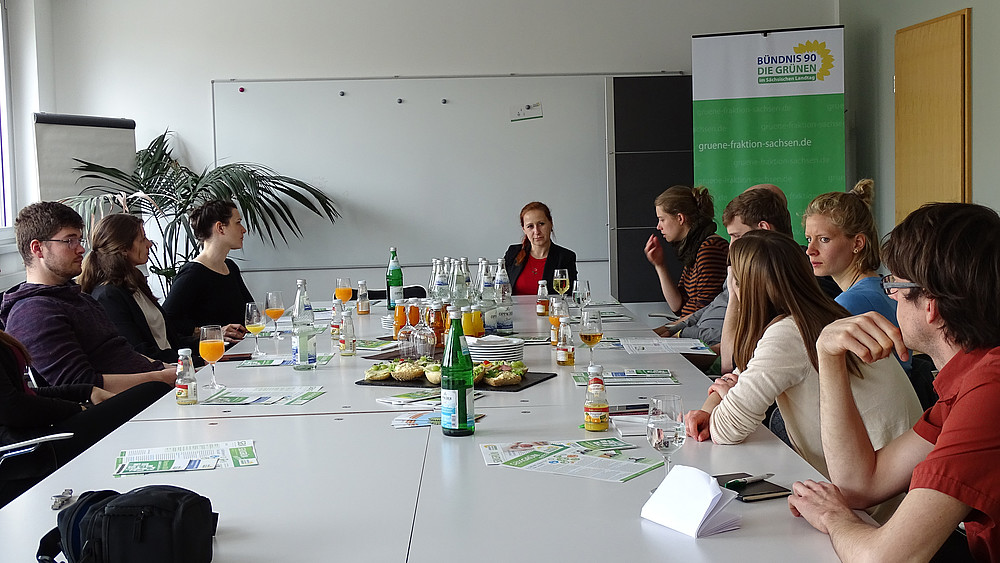Master's students from the "Management of social change" report on their visit to Dresden.

Whether change is actually taking place in the Saxon state parliament - we would like to debate this with one or the other MP after our visit. Thanks to Green Party MP Franziska Schubert, we - class SmM17/18S of the Master's degree course in the management of social change at Zittau/Görlitz University of Applied Sciences - were able to enter the arena of Saxony's politicians.
But before we listened to and watched them for an hour in their plenary session, Franziska took almost two hours to answer our questions. Franziska Schubert is originally from Ebersbach-Neugersdorf and is well informed on issues affecting Upper Lusatia.
Our topics included the unconditional basic income, communication in plenary sessions and the possible outcome of the 2019 state elections. But first things first:
It has often been said that Upper Lusatia has incredible potential to grow, to develop and to use the energy of the people living here to achieve great things. Politicians, lecturers at the university and even guest speakers such as Gerald Hüther recognize these diverse opportunities. According to Franziska Schubert, a model of an unconditional basic income is entirely realistic for Upper Lusatia or at least parts of it. As the person responsible for financial and budgetary policy, she has a good understanding of the feasibility of such ideas.
This - along with many other points that Franziska raised - gives us courage. With our university degree, we can work in many areas, but the framework conditions are not always appealing. The wealth of ideas and openness to new ideas on the part of politicians like Franziska Schubert, on the other hand, gives us hope for new prospects.
Finally, the members of parliament in the plenary chamber gave us a small taste of how politics works at the very top: "Dear President, ladies and gentlemen," was the introduction - every time someone new stepped up to the microphone.
Sometimes it really does seem as if proposals, laws, drafts and more are being seriously discussed in the plenary. However, it was made clear to us that transparency leaves a lot to be desired: What is public for the audience has been decided in advance, the positions are clear. There are non-public committees on all kinds of topics. On the one hand, this sounds interesting. Because it is certainly exciting to see what is agreed between the parties and how the diplomatic preliminary talks, for example on topics such as "GDR injustice and the payment of its assets", take place. On the other hand, it is clear that we are not allowed in there. So many issues are being decided on without the people being able to be there and have their say.
But we, the citizens, must not allow ourselves to be completely deprived of this right to have a say. Because this right does not just mean that it has to be fulfilled by politicians. We can use it and have a say. As well as going to the polls, we can take part in the city council, the district council or even the state parliament in ways that are not at all complicated. Because young people, in particular, are needed there. And if we miss them in the relevant places, we should fill them.
Maria Schwalbe-Anker, student on the management of social change course